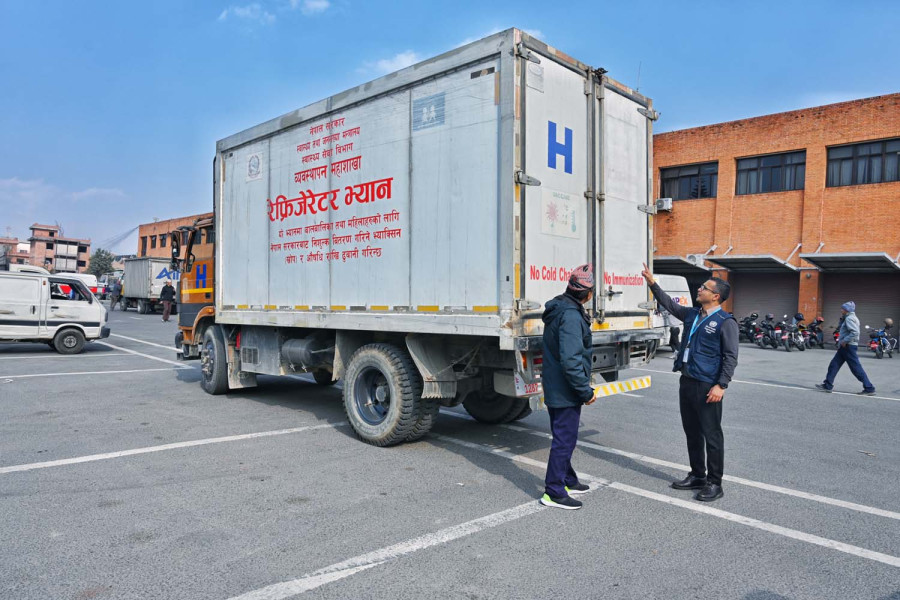Health
Nepal receives initial shipment of essential childhood cancer medicines
The country is all set to receive 35 different types of childhood cancer medicines free of cost under the Global Platform for Access to Childhood Cancer Medicines.
Post Report
Nepal on Sunday received an initial shipment of 35 essential childhood cancer medicines, thanks to the Global Platform for Access to Childhood Cancer Medicines, which provided essential medicines free of cost that will ultimately help in treating children suffering from cancer.
The platform is a partnership between the World Health Organisation and St. Jude Children’s Research Hospital that aims to provide quality-assured childhood cancer medicines to low- and middle-income countries like Nepal.
Nepal became a focus country of the WHO Global Initiative of Childhood Cancer (GICC) in 2020. In 2022, the country was selected as one of the six countries (only one from WHO South-East Asia Region) to participate in the Global Platform. In March 2024, the Ministry of Health and Population signed the letter of agreement to launch this initiative in Nepal.
As part of the agreement, the country will receive an uninterrupted supply of 35 types of essential, quality-assured medicines for children with cancer at no cost for five years.
The medicines, delivered through UNICEF’s procurement services, will support treatment for children at four hospitals–Bhaktapur Cancer Hospital, Kanti Children’s Hospital, Patan Academy of Health Sciences, and Bharatpur Cancer Hospital.
These facilities have met rigorous standards for the safe handling and administration of cancer medicines, ensuring quality care for young patients. This initiative addresses a critical need in Nepal, where approximately 900 new childhood cancer cases emerge annually, with previously only one-third receiving proper treatment due to various constraints, including medicine availability.
The initial shipment includes more than 2,300 packs of critically needed medicines that will be used to treat a variety of childhood cancers, according to a press statement issued by the WHO Nepal.
The procurement of these medicines is based on forecasting and quantification conducted by the WHO Country Office for Nepal in coordination with participating hospitals.
Nepal has declared free treatment for cancer patients up to the age of 14 years through government-designated institutions effective from November 16, 2024, a decision influenced by the previous years of GICC activities and backed by the anticipation of medicines delivered through the Global Platform.
Following the initial shipment, essential medicines to treat childhood cancer are expected to arrive in multiple shipments over the next few months.




 9.83°C Kathmandu
9.83°C Kathmandu














